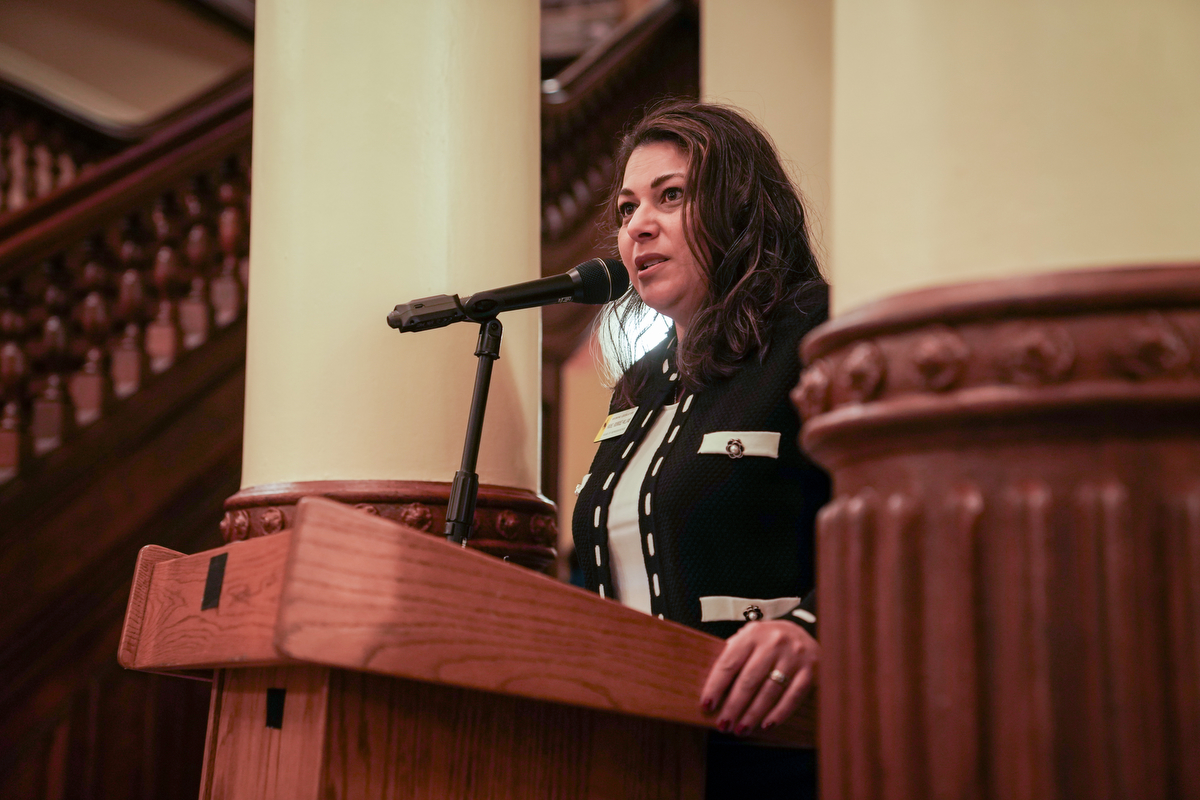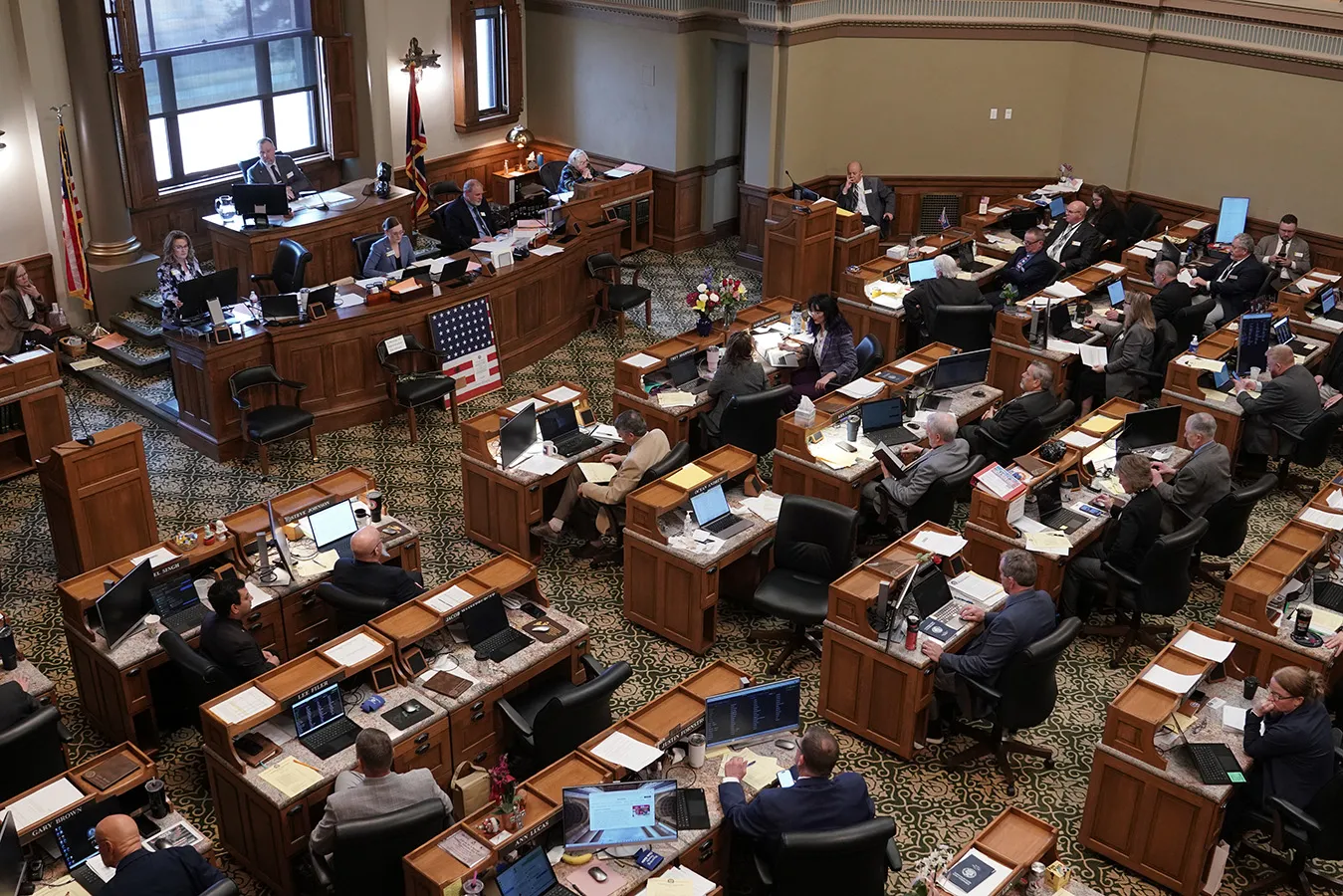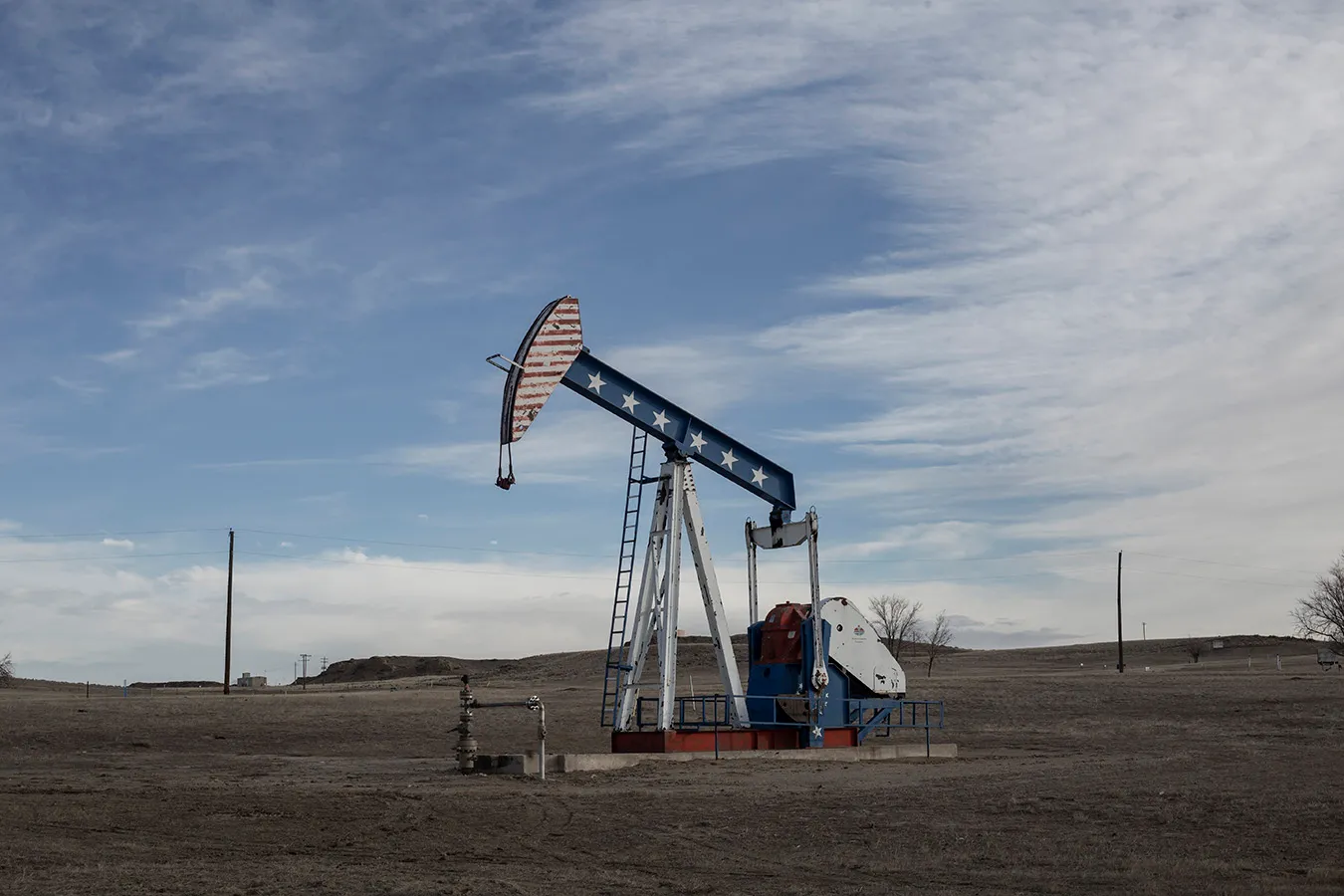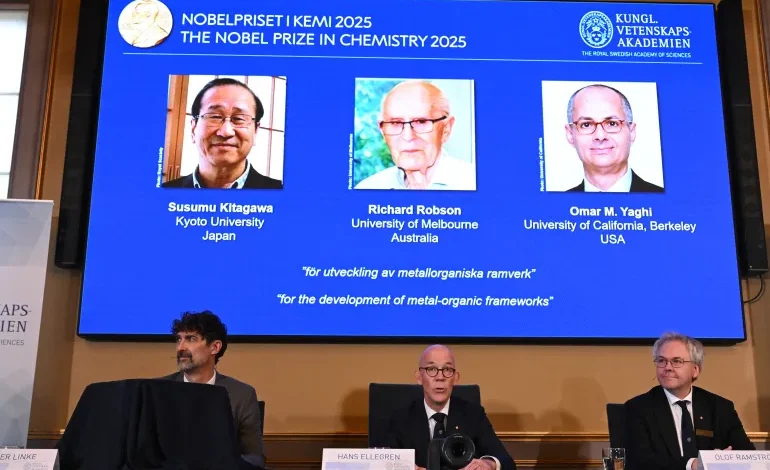The 2025 Nobel Prize in Chemistry has gone to three scientists who’ve essentially built the world’s most useful “molecular Lego sets.” Susumu Kitagawa from Japan’s Kyoto University, Richard Robson from the University of Melbourne, and Omar M. Yaghi from UC Berkeley were recognized for creating metal-organic frameworks (MOFs), complex, porous structures that can trap, store, and filter gases with incredible precision.
If that sounds a bit abstract, think of it this way: these materials can literally pull water from desert air, capture carbon dioxide from the atmosphere, or store toxic gases safely. In short, chemistry with superhero potential.
The Royal Swedish Academy of Sciences said the trio’s discoveries have “enormous potential,” unlocking new ways to design materials for climate solutions and sustainable energy.
Olof Ramström from the Nobel Committee compared MOFs to Hermione’s enchanted handbag, tiny on the outside, but vast on the inside, a fitting metaphor for structures that can hold entire molecules within microscopic frameworks.
Each laureate’s story adds depth to the discovery. Yaghi, born to Palestinian refugees in Jordan, described science as “the greatest equalising force in the world,” recalling how a childhood library book on molecules set him on his path. Kitagawa, meanwhile, dreams of turning captured air into usable resources powered by renewable energy.
The foundations of this breakthrough date back to the late 1980s, when Robson first experimented with combining copper ions and multi-armed molecules, forming diamond-like crystals. They collapsed easily at first, until Kitagawa and Yaghi found ways to make them flexible, stable, and tunable. Their combined work now underpins one of the most rapidly expanding fields in modern chemistry.
The announcement follows Monday’s Nobel in Medicine and Tuesday’s Physics prize, keeping up the annual rhythm of scientific celebration leading up to the December 10 ceremony, Alfred Nobel’s death anniversary.










The latest news in your social feeds
Subscribe to our social media platforms to stay tuned